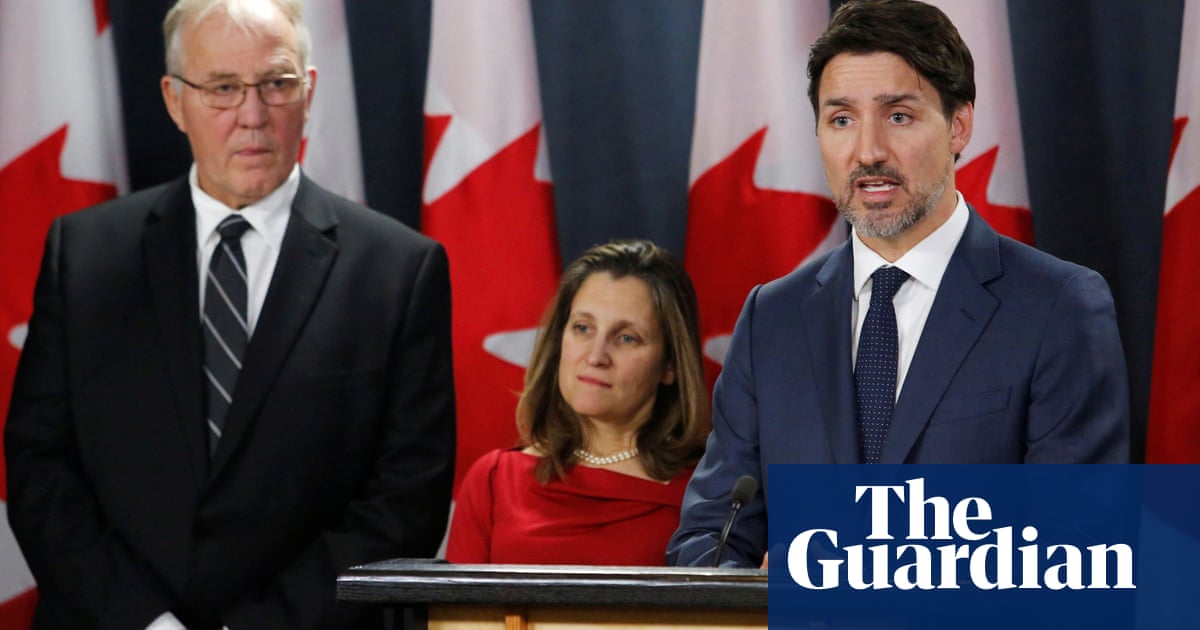PM demands end to untenable and unacceptable rail blockades erected in support of Indigenous activists fighting gas pipeline

Justin Trudeau has demanded that protesters lift railway blockades that have been erected across Canada in support of Indigenous activists who are fighting a natural gas pipeline.
The situation as it currently stands is unacceptable and untenable, the prime minister said on Friday afternoon. Canadians have been patient. Our government has been patient. But it has been two weeks, and the barricades need to come down now.
Rail barricades both on and outside Indigenous reserves have sprung up across the country in solidarity with members of the Wetsuweten First Nation who are opposing a C$6.6bn (US$4.98bn) natural gas pipeline in British Columbia.
The blockades have been blamed for 1,400 layoffs at Canadas main rail companies, propane shortages in eastern Canada and economic hardship for farmers.
Trudeaus comments came just days after he pledged in parliament to continue dialogue with Wetsuweten activists leading protests against the 416-mile Coastal GasLink pipeline. Many other Nations have signed benefits agreements with the company in exchange for their green light on the project.
After Trudeaus press conference, Wetsuweten Hereditary Chief Woos repeated the bands call for the Royal Canadian Mounted Police to withdraw from its land and a halt in construction before talks could begin.
We heard Prime Minister Trudeau just a little while ago talking about the inconvenience Canada has suffered. However, there is a difference between inconvenience and injustice, he said.
Q&A
Who are the Wetsuweten?
The Wetsuweten nation have lived on their territories in what is now British Columbia for thousands of years. They have never signed treaties or sold their land to Canada.
With apopulationof about 5,000, the Wetsuwetenare composed of five clans (Gilseyhu, Likhtsamisyu, Laksilyu, Tsayu and Gidimten), which are further divided into 13 house groups, each with its own distinct territories.
The Unistoten, the People of the Headwaters, belong to the Gilseyhu clan.
Hereditary chiefs are responsible for the health and sustainability of their house group territories, and Wetsuweten law prohibits trespass on the territory of other the house groups.
Wetsuweten people have retained their legal traditions and continue to govern themselves through the Bahtlats (feast hall), where decisions are ratified and clan business is conducted.
On Thursday, the federal public security minister agreed to pull RCMP police officers out of Wetsuweten territory, but late on Friday afternoon, the Wetsuweten nation said that rather than leave, police had had actually increased harassment, made illegal arrests, increased surveillance and monitoring of Wetsuweten people and their invited guests.
Glen Coulthard, an associate professor in political science and the First Nations and Indigenous Studies Program at the University of British Columbia, and a member of the Yellowknives Dene First Nation, predicted that Trudeaus comments would escalate the conflict.
He has placed the onus, the burden of proof, on Indigenous peoples to demonstrate their commitment to reconciliation on his terms or on the terms of a weaponized majority by pitting so-called regular Canadians and workers against Indigenous peoples who have been rendered minorities on their homeland due to colonization and a history of genocide, said Coulthard.
In the Canadian context, the word reconciliation is comparable to the issue of reparations for slavery in the US and UK. It speaks to the amends Canada has agreed to make to compensate for generations of abuse, racism and other crimes against Indigenous peoples.
Trudeau has come under increasing political pressure to end the protests. Andrew Scheer, leader of the official opposition, has branded the protesters radical activists and has called on Trudeau to send in the police.
Original Article : HERE ;
from MetNews https://metnews.pw/justin-trudeau-tells-canada-protesters-the-barricades-need-to-come-down/
No comments:
Post a Comment